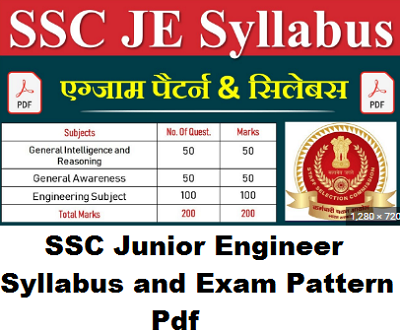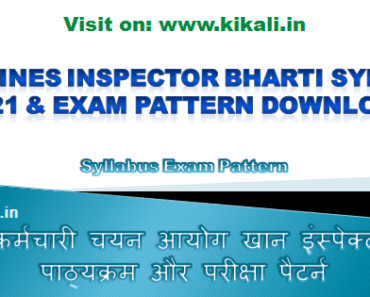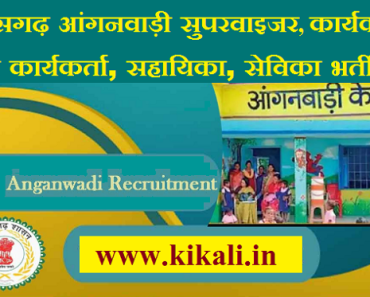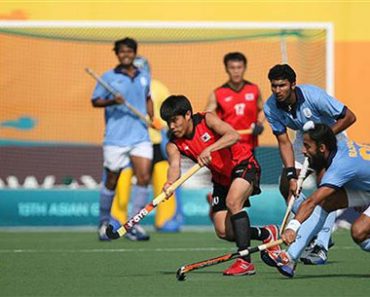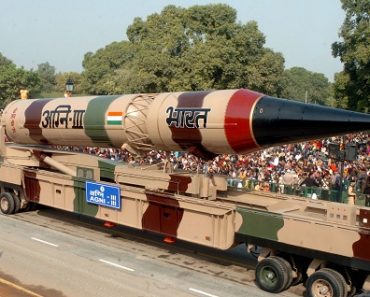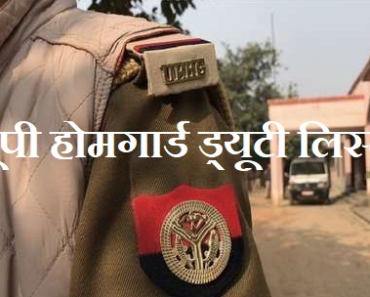SSC Junior Engineer Syllabus and Exam Pattern PDF
SSC Junior Engineer Exam Syllabus: The SSC Junior Engineer exam syllabus is the most crucial aspect for candidates preparing for the SSC JE exam in 2024. Understanding the exam pattern and syllabus plays a vital role in cracking any examination. The SSC Junior Engineer recruitment department has released the notification for Junior Engineer positions on their official website. For those aspiring for Junior Engineer jobs, this is an excellent opportunity for those seeking prestigious government employment.
SSC JE Pariksha Pathykram
In this article, provides complete information on the SSC Junior Engineer Exam Pattern 2024 and Junior Engineer Syllabus 2024. The detailed description of the SSC Junior Engineer written exam 2024 and important model question papers for each subject are presented below to help applicants prepare.
ssc-je-syllabus-sarkari-result-com
SSC Junior Engineer Exam Syllabus
SSC Junior Engineer New Written Syllabus: SSC Junior Engineer Exam, Exam Pattern, Sample Question Paper, SSC Junior Engineer Exam Model Paper, Question Bank, Syllabus, Practice Sets, Result Sheet, Result Date, Merit List, Result Declaration Date, Question-Answers, Cut-Off Marks, Answer Sheet, Answer Key. Applicants who wish to participate in the SSC Junior Engineer examination should begin their preparation subject-wise. Preparation subject-wise is crucial for success in the exam. Through this kind of preparation, applicants can pass the Junior Engineer exam. Below, you will find the complete information about the SSC Junior Engineer Written Exam New Syllabus and Exam Pattern for 2024.
SSC JE Selection Process/ Exam Pattern 2024
- Paper I
- Paper II
Let’s understand each step here thoroughly so that we can easily clear all the papers of the SSC SI Exam in just one attempt.
SSC JE Exam Pattern Paper Subject Type of Examination Mode of examination
Paper I (i) General Intelligence and Reasoning
(ii) General Awareness
(iii) Part-A General Engineering (Civil & Structural) or
Part-B General Engineering (Electrical) or
Part-C General Engineering (Mechanical)Objective Multiple Choice CBT (Online)
Paper II Part-A General Engineering (Civil & Structural)
Part-B General Engineering (Electrical)
Part-C General Engineering (Mechanical)Objective Multiple Choice CBT (Online)
Total
- The recruitment process for this position will require the completion of two exam papers.
- The authority has notified that both Paper 1 and Paper 2 will have unique exam patterns and syllabus.
- The pattern for SSC JE Paper 1 & Paper 2 both are objective.
- In SSC JE Paper 2, there will be a total of 100 questions asked.
- A negative marking of 0.33 marks will be applicable in both Paper 1 and 2 for every wrong answer.
- After reviewing the cutoff score for Paper 1 of the SSC JE examination, the candidate may qualify to take Paper 2.
1. SSC JE Paper I: Paper-I Examination in SSC will be Online (Computer Based Examination) in which all the questions will be of Multiple Choice Questions. SSC JE 2024 Paper 1 is divided into three phases which are given in the below table and this paper will be online.
The Stages of the SSC JE Exam Subject Total Number of Questions Maximum Marks Duration & Timings
Paper I General Intelligence and Reasoning 50 50 2 Hours
General Awareness 50 50
Part-A General Engineering (Civil & Structural) or
Part-B General Engineering (Electrical) or
Part-C General Engineering (Mechanical)100 100
Total 200 200
SSC JE Exam Paper 1
(I) General Intelligence & Reasoning
The SSC JE General Intelligence and Reasoning section of Paper 1 consists of 50 questions carrying a total of 50 marks.
- Analogies
- Abstract videos, symbols, and their relationships
- Verbal and figure classification
- Discrimination
- Differences
- Analysis
- Arithmetical reasoning
- Space visualization
- Analytical functions
- Arithmetical computations
- Problem-solving
- Relationship concepts
- Visual memory
- Decision making
- Arithmetical number series
- Judgment
- Similarities
- Observation
(II) General Awareness
The SSC JE General Awareness section of Paper 1 consists of 50 questions carrying a total of 50 marks.
- Current events relating to India and its neighboring countries
- Scientific Research
- General Polity
- Economic Scene
- History
- especially regarding
- Geography
- Culture
(III) General Engineering Section (1. Civil Engineering & Structural Engineering, 2. Electrical Engineering, 3. Mechanical Engineering): This section includes three parts. Candidates have to choose from any one of these three topics given below. it depends on the stream chosen by the candidate amongst Civil/ Mechanical and Electrical Engineering. In this, a total of 100 questions are asked from each stream.
1. Civil Engineering
- Building Materials
- Estimating
- Costing and Valuation
- Surveying
- Soil Mechanics
- Hydraulics
- Irrigation Engineering
- Transportation Engineering
- Environmental Engineering
Structural Engineering
- Theory of Structures
- Concrete Technology
- RCC Design
- Steel Design.
2. Electrical Engineering: Basic concepts
- Circuit law
- Synchronous Machines, Generation
- Estimation and Costing
- Electrical Machines
- single-phase induction Motors
- Magnetic Circuit
- Transmission and Distribution
- Measurement and Measuring instruments
- Utilization and Electrical Energy
- Basic Electronics
- Fractional Kilowatt Motors
- AC Fundamentals
3. Mechanical Engineering
- Theory of Machines and Machine Design
- Engineering Mechanics and Strength of Materials
- Properties of Pure Substances
- 1st Law of Thermodynamics
- 2nd Law of Thermodynamics
- Air standard Cycles for IC Engines
- IC Engine Performance
- IC Engines Combustion
- IC Engine Cooling & Lubrication
- Rankine cycle of System
- Boilers, Classification
- Specification
- Fitting & Accessories
- Air Compressors & their cycles
- Refrigeration cycles
- Principle of Refrigeration Plant
- Nozzles & Steam Turbines
- Properties & Classification of Fluids
- Fluid Statics, Measurement of Fluid Pressure
- Fluid kinematics
- Dynamics of Ideal fluids
- Measurement of Flow rate
- basic principles
- Hydraulic Turbines
- Centrifugal Pumps
- Classification of steel.
1. SSC JE Paper II: SSC JE Paper 2 section includes three parts. it depends on the stream chosen by the candidate amongst Civil/ Mechanical and Electrical Engineering. Paper 2 will have 100 questions in each part of 100 marks.
The Stages of the SSC JE Exam Subject Total Number of Questions Maximum Marks Duration & Timings
Paper II Part A- General Engineering(Civil & Structural) 100 100 2 Hours
Part B- General Engineering (Electrical) 100 100
Part C- General Engineering (Mechanical) 100 100
Total 300 300
SSC JE Exam Paper 2
Part A SSC JE Syllabus for Civil Engineering
1. Building Materials
- Physical and chemical properties
- Classification
- Standard Tests
- Uses and Manufacture/Quarrying of Materials
- Building stones
- Silicate based material
- Cement (Portland)
- Asbestos Products
- timber and wood based product
- Laminates
- Bituminos materials
- paints
- Varnishes
2. Estimating, Costing, and Valuation
- Estimate
- Glossary of technical terms
- Analysis of rates
- Methods and unit of measurement
- Items of work – earthwork
- Brick work (Modular & Traditional bricks)
- RCC work
- Shuttering
- Timber work
- Painting
- Flooring
- Plastering
- Boundary wall
- Brick building
- Water Tank
- Septic tank
- Bar bending schedule
- Centre line method
- Mid-section formula
- Trapezoidal formula
- Simpson’s rule
- Cost estimate of Septic tank
- Flexible pavements
- Tube well
- Isolates and combined footings
- Steel Truss
- Piles, and pile-caps
- Valuation – Value and cost
- Scrap value
- Salvage value
- Assessed value
- Sinking fund
- Depreciation and obsolescence
- Methods of Valuation.
3. Surveying
- Principles of surveying
- Measurement of distance
- Chain surveying
- Working on the prismatic compass
- Compass traversing
- Bearings
- Local attraction
- Plane table surveying
- The theodolite traversing
- Adjustment of theodolite
- Leveling
- Definition of terms used in leveling
- Contouring
- Curvature
- Refraction corrections
- Temporary and permanent adjustments of dumpy level
- Methods of contouring
- Uses of a contour map
- Tachometric survey
- Curve setting
- Earthwork calculation
- Advanced surveying equipment.
4. Soil Mechanics
- Origin of soil
- Phase diagram
- Definitions-void ratio
- Porosity, degree of saturation
- Water content
- The specific gravity of soil grains
- Unit weights
- Density index
- Interrelationship of different parameters
- Grain size distribution curves and their uses
- Index properties of soils
- Atterberg’s limits
- ISI soil classification and plasticity chart
- Permeability of soil
- Ccoefficient of permeability
- Determination of coefficient of permeability
- Unconfined and confined aquifers
- Effective stress
- Quicksand
- Consolidation of soils
- Principles of consolidation
- Degree of consolidation
- Pre-consolidation pressure
- Normally consolidated soil
- E-log p curve
- Computation of ultimate settlement
- Shear strength of soils
- Direct shear test
- Vane shear test
- Triaxial test.
- Soil compaction
- Laboratory compaction test
- Maximum dry density and optimum moisture content
- Earth pressure theories
- Active and passive earth pressures
- Bearing capacity of soils
- Plate load test
- Standard penetration test
5. Hydraulics
- Fluid properties and hydrostatics
- Measurements of flow
- Bernoulli’s theorem and its application
- Flow-through pipes
- Flow in open channels
- Weirs
- Flumes
- Spillways
- Pumps and turbines.
6. Irrigation Engineering
- Definition
- Necessity
- Benefits
- 2II effects of irrigation
- Types and methods of irrigation
- Hydrology – Measurement of rainfall
- Runoff coefficient
- Rain gauge
- Losses from precipitation – evaporation
- Infiltration
- Water requirement of crops
- Duty, delta and base period
- Kharif and Rabi Crops
- Command area
- Time factor
- Crop ratio
- Overlap allowance
- Irrigation efficiencies
- Different types of canals
- Types of canal irrigation
- Loss of water in canals
- Canal lining – types and advantages
- Shallow and deep to wells,
- The yield from a well
- Weir and barrage
- Failure of weirs and permeable foundation
- Slit and Scour
- Kennedy’s theory of critical velocity
- Lacey’s theory of uniform flow
- Definition of flood
- Causes and effects
- Methods of flood control
- Water logging
- Preventive measure
- Description of land and reclamation processes
- Major irrigating Projects in India.
7. Transportation Engineering
- Highway Engineering
- Cross-sectional elements
- Geometric design
- Types of pavements
- Pavement materials
- Aggregates and bitumen
- Different tests
- Design of flexible and rigid pavements
- Water Bound Macadam (WBM) and Wet Mix Macadam (WMM)
- Gravel Road
- Bituminous construction
- Rigid pavement joint
- Pavement maintenance
- Highway drainage
- Railway Engineering
- Components of the permanent way -Sleepers
- Ballast
- Fixtures and fastening
- Track geometry
- Points and crossings
- Track junction
- Stations and yards
- Traffic Engineering – Different traffic survey
- Speed-flow-density and their interrelationships
- Intersections and interchanges
- Traffic signals
- Traffic operation
- Traffic signs and markings
- Road safety.
8. Environmental Engineering
- Quality of water
- Source of water supply
- Purification of water
- Distribution of water
- Need of sanitation
- Sewerage systems
- Circular sewer
- Oval sewer
- Sewer appurtenances
- Sewage treatments
- Surface water drainage
- Solid waste management – types, effects, engineered management system.
- Air pollution – pollutants, causes, effects, control.
- Noise pollution – cause, health effects, control.
Part A SSC JE Syllabus for Structural Engineering
1. Theory of Structures
- Elasticity constants
- Types of beams – determinate and indeterminate
- Bending moment and shear force diagrams of simply supported
- Cantilever and overhanging beams
- Moment of area and moment of inertia for rectangular & circular sections
- Bending moment and shear stress for tee
- Channel and compound sections
- Chimneys
- Dams and retaining walls
- Eccentric loads
- Slope deflection of simply supported and cantilever beams
- Critical load and columns
- Torsion of circular section.
2. Concrete Technology
- Properties
- Advantages and uses of concrete
- Cement aggregates
- The importance of water quality
- Water-cement ratio
- Workability
- Mix design
- Storage
- Batching
- Mixing
- Placement
- Compaction
- Finishing and curing of concrete
- Quality control of concrete
- Hot weather and cold weather concreting,
- Repair and maintenance of concrete structures
3. RCC Design
- RCC beams-flexural strength
- Shear strength
- Bond strength
- Design of singly reinforced and double reinforced beams
- cantilever beams
- T-beams, lintels
- One-way and two-way slabs
- Isolated footings
- Reinforced brick works
- Columns
- Staircases
- Retaining walls
- Water tanks (RCC design questions may be based on both Limit State and Working Stress methods)
4. Steel Design
- Steel design and construction of steel columns
- Beams roof trusses plate girders
Part B SSC JE Syllabus for Electrical Engineering
1. Basic Concepts
- Concepts of resistance
- Inductance
- Capacitance and various factors affecting them
- Concepts of current
- Voltage
- Power
- Energy and their units
2. Circuit law
- Kirchhoff‟s law
- Simple Circuit solution using network theorems.
3. Magnetic Circuit
- Concepts of flux
- Mmf
- Reluctance
- Different kinds of magnetic materials
- Magnetic calculations for conductors of different configuration e.g. straight, circular, solenoidal, etc.
- Electromagnetic induction, self, and mutual induction.
4. AC Fundamentals
- Instantaneous
- Peak
- R.M.S. and average values of alternating waves
- Representation of sinusoidal waveform
- Simple series and parallel AC Circuits consisting of R.L. and C
- Resonance
- Tank Circuit
- Poly Phase system – star and delta connection
- 3 phase power
- DC and sinusoidal response of R-Land R-C circuit
5. Measurement and Measuring Instruments
- Measurement of power (1 phase and 3 phase, both active and re-active) and energy
- 2 wattmeter method of 3 phase power measurement
- Measurement of frequency and phase angle
- Ammeter and voltmeter (both moving oil and moving iron type)
- The extension of range wattmeter
- Multimeters
- Megger
- Energy meter AC Bridges
- Use of CRO
- Signal Generator
- CT
- PT and their uses
- Earth Fault detection
6. Electrical Machines
- (a) D.C. Machine – Construction
- Basic Principles of D.C. motors and generators
- Their characteristics
- Speed control and starting of D.C. Motors
- Method of braking motor
- Losses and efficiency of D.C. Machines
- (B) 1 phase and 3 phase transformers – Construction
- Principles of operation
- Equivalent circuit
- Voltage regulation
- O.C. and S.C. Tests
- Losses and efficiency
- Effect of voltage
- Frequency and waveform on losses
- Parallel operation of 1 phase /3 phase transformers
- Autotransformers
- (c) 3 phase induction motors
- Rotating magnetic field
- Principle of operation
- Equivalent circuit
- Torque-speed characteristics
- Starting and speed control of 3 phase induction motors
- Methods of braking
- Effect of voltage and frequency variation on torque speed characteristics
7. Fractional Kilowatt Motors and Single Phase Induction Motors
- Characteristics and applications.
8. Synchronous Machines
- Generation of 3-phase e.m.f. armature reaction
- Voltage regulation
- Parallel operation of two alternators
- Synchronizing
- Control of active and reactive power
- Starting and applications of synchronous motors.
9. Generation, Transmission, and Distribution
- Different types of power stations
- Load factor
- Diversity factor
- Demand factor
- Cost of generation
- Inter-connection of power stations
- Power factor improvement
- Various types of tariffs
- Types of faults
- Short circuit current for symmetrical faults
- Switchgears – the rating of circuit breakers
- Principles of arc extinction by oil and air
- H.R.C. Fuses
- Protection against earth leakage / over current, etc.
- Buchholtz relay
- Merz-Price system of protection of generators & transformers
- Protection of feeders and bus bars
- Lightning arresters
- Various transmission and distribution systems
- Comparison of conductor materials
- Efficiency of the different systems
- Cable – Different types of cables
- Cable rating, and derating factor
10. Estimation and Costing
- Estimation of lighting scheme
- Electric installation of machines and relevant IE rules
- Earthing practices and IE Rules.
11. Utilization of Electrical Energy
- Illumination
- Electric heating
- Electric welding
- Electroplating
- Electric drives and motors.
12. Basic Electronics
- Working on various electronic devices e.g. P N Junction diodes Transistors (NPN and PNP type)
- BJT and JFET
- Simple circuits using these devices.
Part C SSC JE Syllabus for Mechanical Engineering
1. Theory Of Machines and Machine Designs
- Concept of a simple machine
- Four bar linkage and link motion
- Flywheels, and fluctuation of energy
- Power transmission by belts – V-belts and Flat belts
- Clutches – Plate and Conical clutch
- Gears –Type of gears
- Gear profile and gear ratio calculation
- Govemos – Principles and Classification
- Riveted joint
- Cams
- Bearings
- Friction in collars and pivots
2. Engineering Mechanics and Strength of Materials
- Equilibrium of Forces
- Law of motion
- Friction
- Concepts of stress and strain
- Elastic limit and Elastic constants
- Bending moments and shear force diagram
- Stress in composite bars
- Torsion of Circular Shafts
- Bucking of columns – Euler’s and ranking’s theories
- Thin walled pressure vessels.
3. Thermal Engineering
- Properties of Pure Substances
- p-v & P-T diagrams of pure substance like H₂O
- Introduction of steam table with respect to steam generation process
- Definition of saturation
- Wet & superheated status
- Definition of dryness fraction of steam
- Degree of superheat of steam
- H-s chart of steam (Mollier’s Chart)
4. 1 Law of Thermodynamics
- Definition of stored energy & internal energy
- 1″ Law of Thermodynamics of cyclic process
- Non Flow Energy Equation
- Flow Energy & Definition of Enthalpy
- Conditions for Steady State Steady Flow
- Steady State Steady Flow Energy Equation
5. 2 Law of Thermodynamics
- Definition of Sink
- Source Reservoir of Heat
- Heat Engine
- Heat Pump & Refrigerator
- Thermal Efficiency of Heat Engines & co-efficient of performance of Refrigerators
- Kelvin Planck & Clausius Statements of 2″ Law of Thermodynamics
- Absolute or Thermodynamic Scale of temperature
- Clausius Integral
- Entropy
- Entropy change calculation of ideal gas processes
- Carnot Cycle & Camot Efficiency
- PMM-2 definition & its impossibility.
6. Air standard Cycles for IC engines
- Otto cycle
- Plot on P-V
- T-S Planes
- Thermal Efficiency
- Diesel Cycle
- Plot on P-V, T-S planes
- Thermal efficiency
- IC Engine Performance
- IC Engine Combustion
- IC Engine Cooling
- Lubrication.
7. Rankine cycle of steam
- Simple Rankine cycle plot on P-V
- T-S
- h-s planes
- Rankine cycle efficiency with & without pump work
- Boilers
- Classification
- Specification
- Fittings & Accessories
- Fire Tube & Water Tube Boilers
- Air Compressors & their cycles
- Refrigeration cycles
- Principle of a Refrigeraton Plant
- Nozzles & Steam Turbines
8. Fluid Mechanics & Machinery
Properties & Classification of Fluid:
- Ideal & real fluids
- Newton’s law of viscosity
- Newtonian and Non-Newtonian fluids
- compressible and incompressible fluids.
Fluid Statics:
- Pressure at a point
Measurement of Fluid Pressure:
- Manometers
- U-tube
- Inclined tube
Fluid Kinematics:
- Stream line
- Laminar & turbulent flow
- External & internal flow
- Continuity equation
Dynamics of ideal fluids:
- Bernoulli’s equation
- Total head
- Velocity head
- Pressure head
- Application of Bernoulli’s equitation
Measurement of Flow rate Basic Principles:
- Venturimeter
- Pilot tube
- Orifice meter
Hydraulic Turbines:
- Classifications
- Principles
Centrifugal Pumps:
- Classifications
- Principles
- Performance
- Production Engineering
Classification of Steels:
- Mild steal & alloy steel
- Heat treatment of steel
- Welding Arc Welding
- Gas Welding
- Resistance Welding
- Special Welding Techniques ie. TIG, MIG, etc. (Brazing & Soldering)
- Welding Defects & Testing
- NDT
- Foundry & Casting methods
- Defects
- Different casting processes
- Forging
- Extrusion etc,
- Metal cutting principles
- Cutting tools
- Basic Principles of machining with (1) Lathe (1) Milling (iii) Drilling (iv) Shaping (v) Grinding Machines
- Tools & manufacturing processes.
SSC JE Syllabus PDF
The official website (https://ssc.nic.in) provides the syllabus for SSC JE recruitment in PDF format. You can visit this website to check various job notifications for different positions and download their respective syllabus in PDF format.
In addition to this, other websites on the internet may offer the SSC JE syllabus in PDF format, but they may not be official. Please make sure to download the syllabus only from official websites.
Here we are providing the complete SSC JE syllabus based on the official website at www.kikali.in. We request you to share the SSC JE recruitment syllabus with as many people as possible who are preparing for the SSC JE exam or are interested in the recruitment.
SSC JE Syllabus & Exam Pattern PDF Link – Click Here
Information Required to Download SSC JE Admit Card
To download the SSC JE (Junior Engineer) Admit Card, you will need the following information:
- Registration Number/User ID: Your registration number or user ID, which was provided to you during the registration process for the SSC JE examination.
- Password/Fresh Password: You will need to use the password that you set during the registration or the fresh password provided by the system in case you have forgotten the original password.
- Correct Website: Make sure to download the admit card from the official SSC website (https://ssc.nic.in) or any other regional SSC website, depending on the region you applied for.
- Exam Details: You may need to provide specific exam details such as the name of the exam, exam date, exam centre, etc. while downloading the admit card.
Keep in mind that the admit card is usually released a few days before the examination. Therefore, it’s essential to regularly check the official website for the latest updates and information. Keep your admit card safe and take a printout of it to carry to the examination centre on the day of the exam.
Tips and Suggestions for SSC JE Exam Preparation
- Study the Syllabus: Understand the exam syllabus thoroughly and study according to it. Give priority to the main subjects mentioned in the syllabus and grasp their concepts.
- Review Previous Year’s Question Papers: Analyze the previous year’s question papers to get a better understanding of the exam pattern and subject matter.
- Mock Tests: Regularly take mock tests to strengthen your exam preparation and practice time management.
- Positive Attitude: Maintain self-confidence and a positive attitude. Your hard work and preparation will guide you towards success.
- Time Management: Time management is crucial during the exam. Develop the ability to solve questions within the given time frame.
- Stay Healthy: Rest well before the exam day and take care of your health. Pay attention to your diet and overall well-being.
- Prepare for the Exam Center: Check the exam centre address on the day of the exam and ensure you reach there on time.
Keeping these suggestions and tips in mind, you can improve your preparation for the SSC JE exam. Stay patient, study diligently, and keep making consistent efforts. Prepare for the exam intelligently rather than forcefully. All the best!
Recommended Books and Reference Material for SSC JE Exam Preparation
Preparing for the SSC (Staff Selection Commission) JE (Junior Engineer) exam requires the right study materials and resources. Here are some highly recommended books and reference materials for different engineering disciplines:
For SSC JE Civil Engineering Exam:
- SSC Junior Engineer Civil & Structural Engineering Recruitment Exam Guide by Disha Experts.
- SSC Junior Engineer (Civil Engineering) Recruitment Exam Guide by RPH Editorial Board.
- SSC JE (Civil) Exam Guide by GK Publications.
For SSC JE Electrical Engineering Exam:
- SSC Junior Engineer Electrical Engineering Recruitment Exam Guide by Disha Experts.
- SSC JE Electrical Engineering Exam Guide by RPH Editorial Board.
- SSC JE Electrical Engineering by Youth Competition Times.
For SSC JE Mechanical Engineering Exam:
- SSC Junior Engineer Mechanical Engineering Recruitment Exam Guide by Disha Experts.
- SSC JE (Mechanical Engineering) Recruitment Exam Guide by RPH Editorial Board.
- SSC JE (Mechanical) Exam Guide by GK Publications.
These books cover the exam syllabus, pattern, practice questions, solutions to the previous year’s question papers, and useful tips. You can choose the ones that suit your needs and preferences to enhance your exam preparation.
Additionally, you can also find free online reference materials, previous year’s question papers, practice sets, practice tests, and other resources found on the internet that can help your preparation.
Frequently Asked Questions (FAQs) on SSC JE Syllabus
Q 1. What is the SSC JE exam?
Ans. The SSC JE exam is conducted by the Staff Selection Commission to recruit Junior Engineers in various government departments and organizations.
Q 2. What subjects are included in the SSC JE exam syllabus?
Ans. The SSC JE exam syllabus includes General Awareness, General Intelligence and Reasoning, and General Engineering (Civil/Electrical/Mechanical).
Q 3. Is there a negative marking in the SSC JE exam?
Ans. No, there is no negative marking in the SSC JE (Junior Engineer) examination.
Q 4. Is the SSC JE syllabus the same for all engineering branches?
Ans. No, the syllabus for Paper-I is the same for all branches, but Paper-II syllabus differs based on the engineering discipline chosen by the candidate.
Q 5. What is the level of difficulty for the SSC JE exam?
Ans. The SSC JE exam is of moderate difficulty level, and candidates need to prepare thoroughly for both technical and non-technical subjects.
Q 6. Can final-year engineering students apply for the SSC JE exam?
Ans. Yes, final-year engineering students can apply for the SSC JE exam, provided they meet all the eligibility criteria before the specified deadline.

